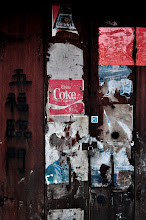Elliott Wave Theory
http://www.acrotec.com/ewt.htm
Elliott Wave Theory interprets market actions in terms of recurrent price structures obedient to the Fibonacci sequence. Basically, Market cycles are composed of two major types of Wave : Impulse Wave and Corrective Wave. For every impulse wave, it can be sub-divided into 5 - wave structure (1-2-3-4-5), while for corrective wave, it can be sub-divided into 3 - wave structures (a-b-c).
Surfer's Waves within Wave
An important feature of Elliott Wave is that they are fractal in nature. 'Fractal' means market structure are built from similar patterns on a larger or smaller scales. Therefore, we can count the wave on a long-term yearly market chart as well as short-term hourly market chart.See waves within wave:
Rules for Wave Count
Based on the market pattern, we can identify ' where we are' in term of wave count. Nevertheless, as the market pattern is relatively simplistic, there are several rules for valid counts:- Wave 2 should not break below the beginning of Wave 1;
- Wave 3 should not be the shortest wave among Wave 1, 3 and 5;
- Wave 4 should not overlap with Wave 1, except for wave 1, 5, a or c of a higher degree.
- Rule of Alternation : Wave 2 and 4 should unfold in two different wave forms.
Wave forms in Impulse Wave
There are three major types of wave form in Impulse Wave:(a) Extended Wave
Among Wave 1, 3 and 5, only one should unfolded into extended wave. 'Extension' means the wave is elongated in nature and sub-waves are conspicuous in relation to waves of higher degree.See extension pattern:
(b) Diagonal Triangle at Wave 5
Sometimes, the momentum at Wave 5 is so weak that the 2nd and 4th sub-waves overlap with each other and evolved into diagonal triangle.(c) 5th Wave Failure
In some other circumstances, the Wave 5 is so weak than it even cannot surpass the top of the wave 3, causing a double top at the end of the trend.See diagonal triangle and failure fifth pattern:
Wave Forms in Corrective Wave
Corrective Wave forms are rather complicated, but basically we can categorize them into six major wave forms:- Zig-Zag : abc pattern composed of 5-3-5 sub-wave structure.
- Flat : abc pattern composed of 3-3-5 sub-wave structure, with b equals a.
- Irregular : abc pattern composed of 3-3-5 sub-wave structure, with b longer than a.
- Horizontal Triangle : 5-wave triangular pattern composed of 3-3-3-3-3 sub-wave structure.
- Double Three : abcxabc pattern composed of any two from above, linked by x wave.
- Triple Three : abcxabcxabc pattern composed of any three from above, linked by two x waves.

No comments:
Post a Comment